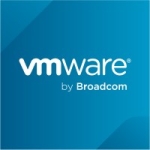What is most valuable?
They just have a lot of products, and they work well together.
I think it's free. That's one more thing.
I think it's better than the VMware from that perspective. I think it has improved quite a bit in the last 12 months. They're still lagging behind, but I like the new features they're introducing. I think that's why I'm one of the applicants for the product.
How has it helped my organization?
My organization is supposed to integrate Oracle products with our line of products too, so it doesn't really improve, but I think it's a synergy between the two companies, to be able to bring in the products from two companies and make it a better solution. I think there's a lot of synergy between the two for that.
What needs improvement?
Yes. Backup recovery, snapshot technology integrated with the hardware array, DR solutions, more of migrating VMs between different ones.
It would be nice to have a single click button to, say, migrate my VMware VM into the Oracle VM, or vice-versa. That is not available right now, and even the procedures there is really complicated, time-consuming.
Those are a lot of things we talk about with the Oracle VM engineers. They said they're short of resources, they can only prioritize certain things. I'm still hoping that they'll come out soon.
What do I think about the stability of the solution?
It is. Especially the new version, 3.4.
What do I think about the scalability of the solution?
I have not been playing with the scalability, but I know they can scale pretty high. Especially I know they use it within their own MiniCluster product, and a lot of their appliances. I have no doubt it can scale.
How are customer service and technical support?
Yes, I have actually. Kind of hit and miss.
It depends, I guess, on the support engineer really. I think I got more misses than hits.
Which solution did I use previously and why did I switch?
No. It's just my focus of work. I'm supposed to work on Oracle products and their VM solutions, Oracle VM.
I do use the VirtualBox, but that's not enterprise grade, I don't think. Customers in an enterprise environment would not deploy VirtualBox for productions, but they would go with the normal VM for that.
How was the initial setup?
Yes, straightforward.
The documentation is clear. The time to implement is really short. You put the CD in there, and you just kind of follow the prompts and you're done pretty much. I like that aspect of it.
Which other solutions did I evaluate?
If I were a customer and I had to choose, honestly there's only two other solutions out there, either VMware or Oracle VM. I think Hyper-V is too narrow-focused, so it would be out of my choices.
Again, if I wanted to choose between the two, if I'm not already a VMware customer, I would definitely go Oracle VM, especially when I run Oracle products already. Oracle databases, or middleware stuff.
I think it's just given me a better customer experience, one vendor to go to for support, one vendor to get patches. I believe that they can offer better integrations in the future. At least that's what I'm hoping for.
What other advice do I have?
They have to look at their existing infrastructure, what they have, and what makes sense.
If they already have a big presence of VMware, it won't make sense to start with Oracle VM products. If they are just starting out, and want to test the waters and see what features, I would definitely recommend Oracle VM first. It does offer a lot of features that VMware does, with the right parts.
Disclosure: My company does not have a business relationship with this vendor other than being a customer.















